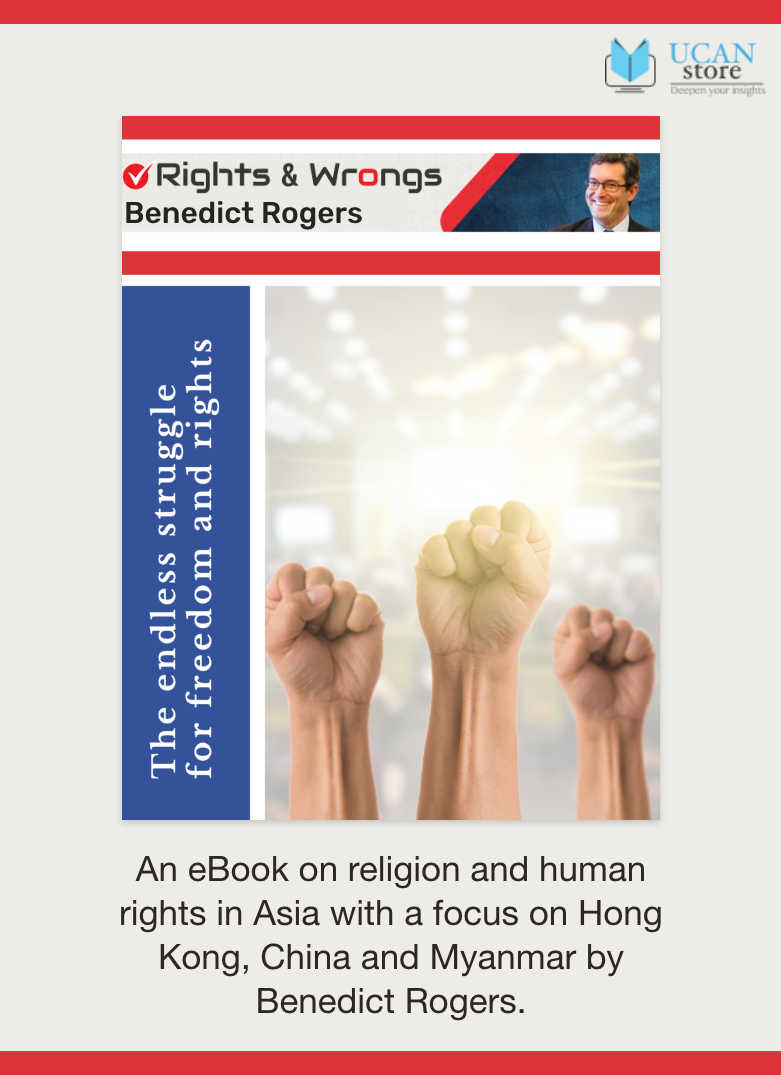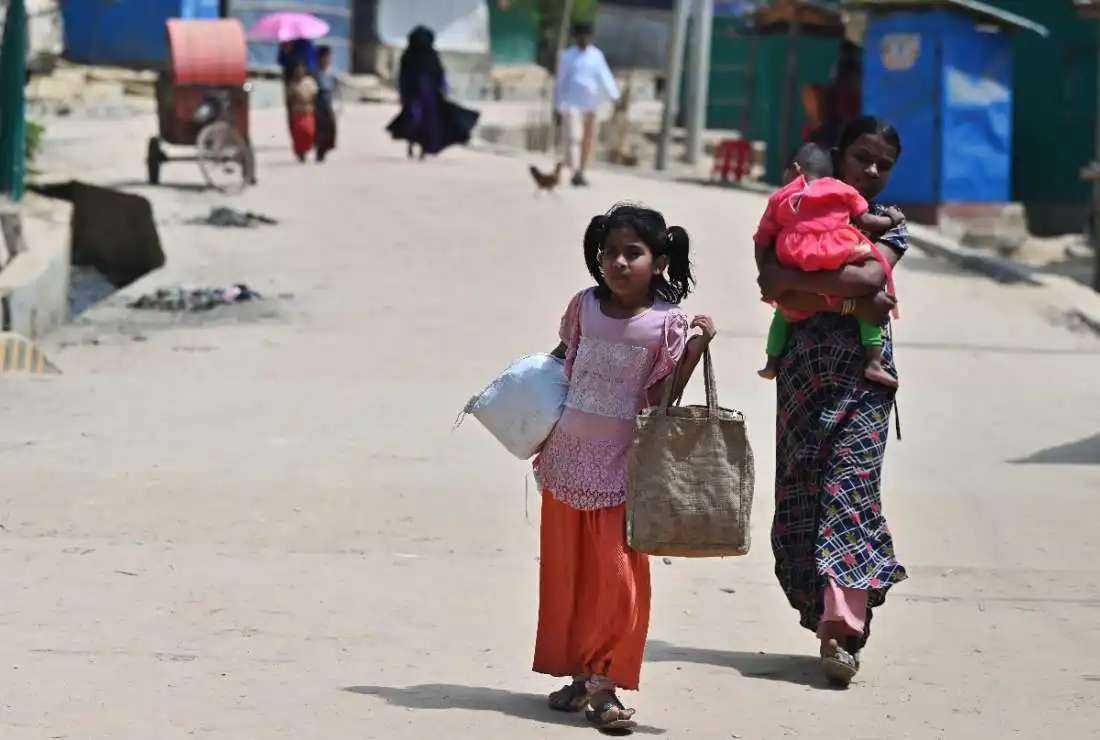
The question begs to be answered by the international community, including the UN

Rohingya people walk along a street after collecting relief materials in Jamtoli refugee camp in Ukhia, Cox's Bazar, Bangladesh, on March 22, 2022. (Photo: AFP)
The World Refugee Day was observed worldwide on June 20. As Bangladesh has not yet signed the 1951 Refugee Convention, there is no merit in not officially observing the day. Rather, the greater benefit for Bangladesh lies in the efforts to find a solution to the Rohingya problem.
There are many countries that have not signed the Refugee Convention. Despite that, as member states of the United Nations (UN), they observe World Refugee Day.
The day reminds nations of the need to stand by those living an inhuman life as refugees and to give them strength and courage. It serves as a global platform to support the rights, needs and dreams of people living as refugees in different countries of the world.
This year is no different. Its theme in Bangla language meant, 'House of hope even in the homeless: where the world's refugees are always included.'
Refugees should be included in the policy framework of the host state. It is the power of inclusion that can bring real and long-term solutions to the refugee problem.
According to the UN statement, refugees are those who leave their country and take refuge in another country, hoping to have a safe life. Therefore, attention and focus are called upon how to include them in the host country.
If it is possible to return safely, the refugees return to their country and contribute to its economic development. This is entailed in the tail of the statement.
This is the problem of the UN. Why people leave their own countries and seek refuge in other countries is not brought to the center of the discussion. Rather, the focus is on how to integrate refugees into countries that shelter them on humanitarian grounds.
The way things stand, it seems the host country has made a mistake by providing shelter to refugees for the sake of humanity. The real fault lies with those countries, which threaten the lives of the people of their own country and force them to flee to other countries.
The international community, including the UN, must take additional responsibility. Instead, it exerts unnecessary pressure on the host country in the name of human rights protection causing the global refugee problem to increase.
After the Second World War, various initiatives and many laws have been enacted to reduce the number of refugees in the world. But their numbers have only increased.
The growing number of refugees is a major problem in today’s world. The number of refugees from Myanmar, Afghanistan, Syria, Venezuela, Sudan, China, and Ukraine continues to rise.
Recently, the UN refugee agency published a report. It says the number of people displaced today by war, persecution, violence, and human rights abuses stood at around 110 million, while some 62.5 million were internally displaced due to conflict and violence. The number of asylum seekers from different countries is around 5.4 million and the number of stateless people is about 10 million.
Statistics show that the number of displaced people is increasing at a geometric rate. Who is responsible for this increasing trend in numbers? The capitalist, hegemonic, authoritarian, and imperialist states, including the UN, must respond to this.
The people of Bangladesh are also victims of the Rohingya refugee problem. Therefore, a detailed discussion of the Rohingya problem is necessary, focusing on ways to solve it immediately.
Bangladesh currently has over 1.2 million Rohingya refugees living in 34 temporary refugee camps in Ukhia and Teknaf. Even though the repatriation process has been going on for almost six years, not a single Rohingya has been officially sent back to Myanmar.
This is due to Myanmar's non-cooperation, reluctance, and lack of adequate preparation and sincerity. But the Rohingya people are accused of not waiting to go back.
There are no credible promises made to the Rohingya refugee to guarantee their safety and citizenship if they return to their villages in Rakhine State in Myanmar.
However, the international community is silent here. The UN is not involved in the repatriation process in any way. Instead, the UN refugee agency has been issuing statements at regular intervals to discourage repatriation. International cooperation needed to run the Rohingya refugee camps is decreasing.
In such a situation, can Bangladesh ask the world if it made a mistake by upholding humanity, as a result of which, the tax money of its people is being spent on hosting refugees?
Six years have already passed but the international community is yet to play an effective role in solving the Rohingya crisis – this need to be made clear to everyone.
Why must Bangladesh alone bear the 'burden?' This question needs to be answered by the international community.
*Fumiko Yamada, a Japanese national, is a research associate at the University of Melbourne. She has a graduation from the University of Toronto in South Asian Studies and writes about international affairs. The views expressed in this article are those of the author and do not necessarily reflect the official editorial position of UCA News.
Help us keep UCA News independent
The Church in Asia needs objective and independent journalism to speak the truth about the Church and the state.
With a network of professionally qualified journalists and editors across Asia, UCA News is just about meeting that need. But professionalism does not come cheap. We depend on you, our readers, to help maintain our independence and seek that truth.
A small donation of US$2 a month would make a big difference in our quest to achieve our goal.

Share your comments